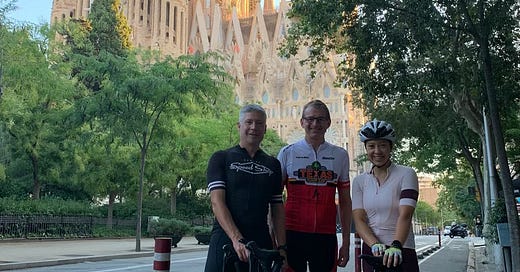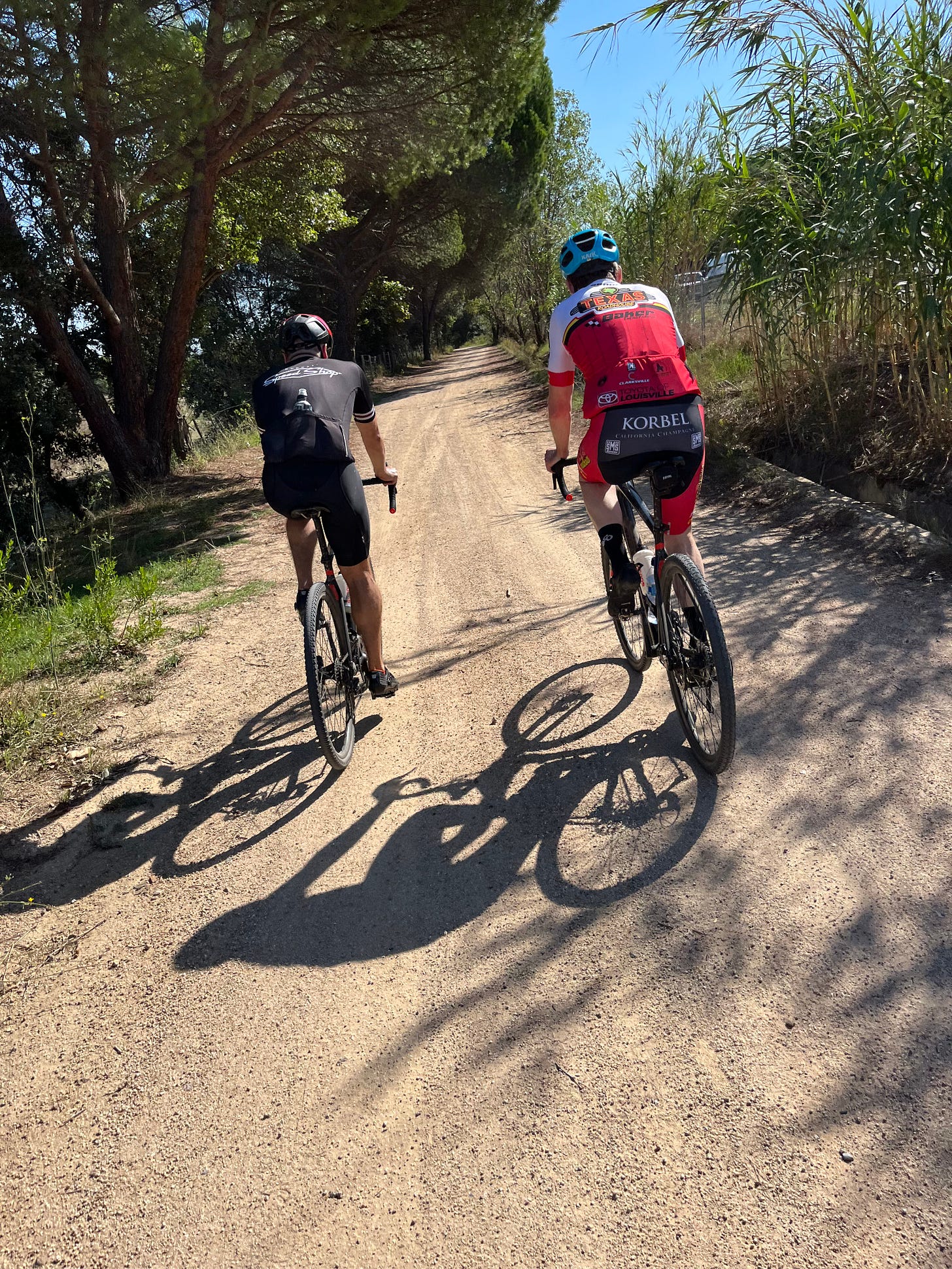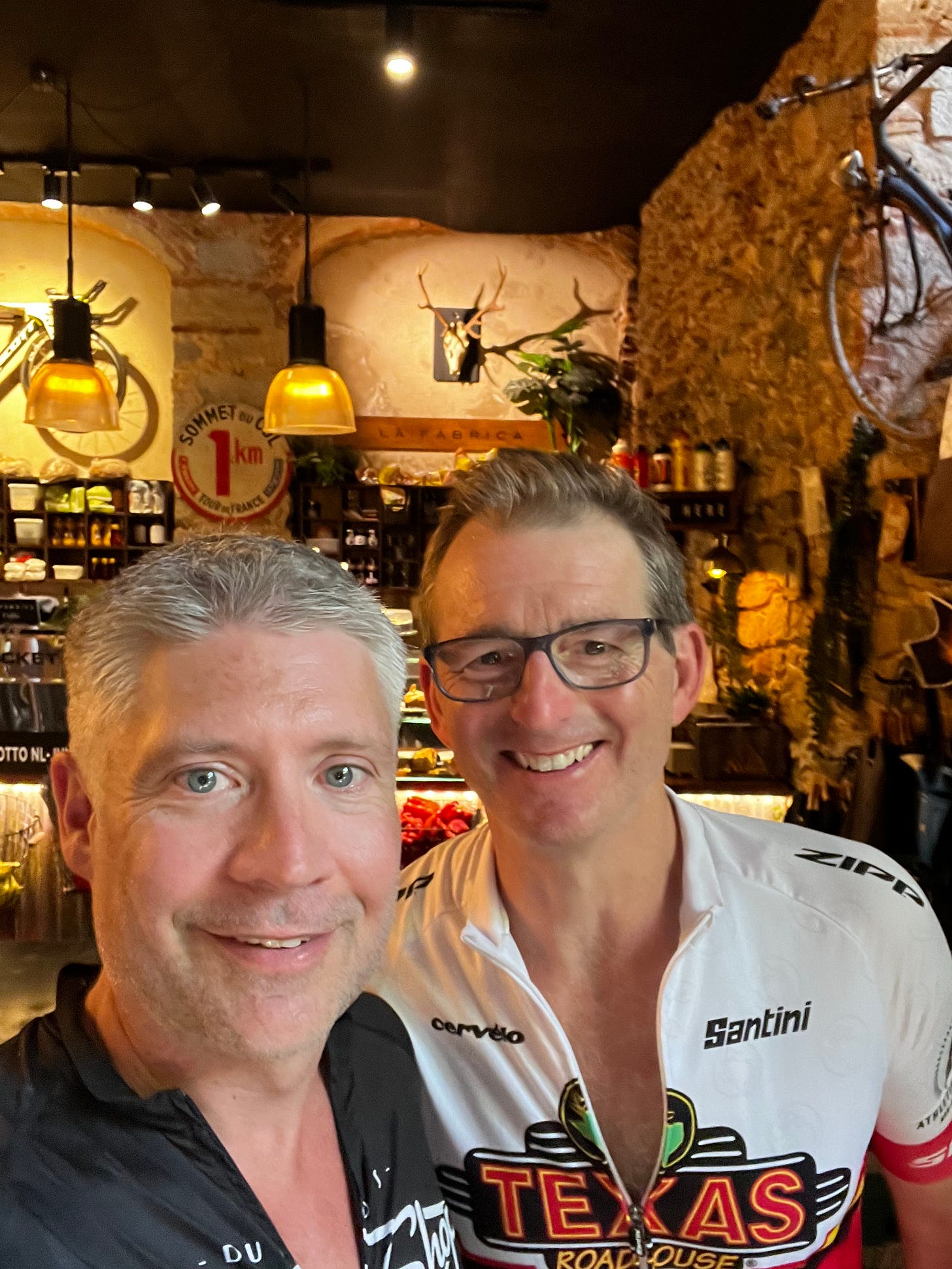A Report from Barcelona
For the first time in 2 years, the European Society of Cardiology Congress met in person. I have some work (and pleasure) to report on.
Medical meetings have a buzz about them. The bright lights, the masses of people, and in Europe, the different languages. Virtual meetings don’t come close.
I just returned from the ESC meeting in Barcelona and have a brief report. The first thing to say is how nice it was to see (and sometimes hug) friends and colleagues from all over the world. It felt normal, and my gosh, did normal feel good.
Maybe it was the 2-year hiatus but this year’s ESC had tons of science. I try to find studies that transcend one specific area of medicine and speak to broader themes of knowledge. You know, studies that make you Stop and Think.
CAPLA
The CAPLA trial studied two techniques to ablate atrial fibrillation. One is simple and basic, the other technique adds more ablation to the simple and basic. IOW, CAPLA tested less vs more. I love such studies.
As it so often is, less beat more. Australian researchers reported no differences in outcomes with the more aggressive approach. I wrote about the study because it speaks to the importance of studying our beliefs with randomized trials.
The extra-ablation approach got established based on weak evidence and strong expert opinion. That is a dangerous combination, one that is often overturned when it faces the test of randomized trials.
My write-up: CAPLA Challenges Expert Opinion on Ablation of Persistent AF and Should Change Practice
DELIVER
There is a new class of drugs called SGLT2 inhibitors. They were first used in diabetes but have proven effective in patients who have heart failure due to weak heart muscle function. We call this HFrEF or heart failure w reduced ejection fraction.
But most patients with heart failure don’t have weak heart function. They have what we call heart failure with preserved ejection fraction or HFpEF.
The DELIVER trial tested SGLT2i drugs in HFpEF. The results were technically positive but no where near as impressive as they were in patients with HFrEF. At ESC, proponents of SGLT2i drugs pushed for their use in all patients with heart failure. This, of course, would increase market share of a pricey drug and increase the cost of healthcare.
I see it differently from the experts. I make the case that the same drug can have different effects when used in different patients. Aspirin, for instance, does little to prevent heart disease in people who have not had a cardiac event, but can be quite helpful after a stent, or heart attack or stroke.
My write up: Do SGLT2 Inhibitors DELIVER in All Patients With Heart Failure?
REVIVED-BCIS
One of the greatest advances in all of medicine is the ability to open a clogged coronary artery and stop a heart attack. It’s magical. We call this percutaneous coronary intervention or PCI.
Here’s the weirdest darn thing: when PCI is done in all other settings outside of stopping a heart attack it looks no better than simple tablets.
Doctors and patients have had the hardest time accepting this—even though it’s been proven in oodles of randomized trials. When we see a partial blockage, we get scared and think it needs to be “fixed.”
British researchers set up a trial of PCI vs tablets that was designed to be a win for fixing blockages. They picked patients most likely to benefit; patients that few doctors today would not do PCI on.
Yet, boom, once again, PCI proved no better than simple medications. I wrote about it, not so much from the cardiology aspect, but from the stand point of Max Planck.
Here is the write up: PCI Fails in Stable Disease Again: REVIVED-BCIS
DANCAVAS — A Cardiac Screening Trial
Professor Axel Diederichsen is a soft-spoken humble man from central Denmark. He had an idea that a constellation of simple cardiac tests performed in 40-minutes at a cost of only €207 would extend life.
In other words, he had the gall to believe that screening for disease might actually work. I write that because, while screening tests are widely accepted, the fact remains that most of these tests do not extend life.
The goal of screening should only be one thing—living longer.
DANCAVAS is a special trial. It hints that screening, done in this special way, in a special country, in a selected group of older men, may actually work.
My write up: Judicious CVD Screening May Work in Men: DANCAVAS. See also this video interview with Professor Diederichsen.
Podcast Update:
The This Week in Cardiology podcast (#TWICPodcast) will cover the ESC.
The link on Apple Podcasts is here. Medical professionals can access a partial transcript and full audio on TheHeart.org | Medscape Cardiology.
If you listen to the podcast, do me a favor and rate and review it. To those at ESC who said nice things about the podcast, I say a hearty thank you!
Bike Adventure
After the meeting was over, I rode from Barcelona to the cycling mecca of Girona, mostly on gravel roads.
I had great company in Canadian heart surgeon Richard Whitlock and PhD candidate Rachel Eikelboom. We started at La Sagrada Familia:
These were the roads and store stop:
After 80k on gravel and under the hot Spanish sun, this tasted amazing:
And the finale in La Fábrica Girona—perhaps the most famous cycling coffee shop in Spain, at least for Americans.
Thanks for reading.
I encourage you to take a look at our new project over at Sensible Medicine. We aim to provide a space for civil discourse and critical appraisal of medical topics.
And you can follow me on Twitter @DrJohnM.
JMM









I love that you share your thoughts and a bit of your personal life with us Dr Mandrola( and associates). It is reassuring to have a trusted, educated person sift thru the medical jungle and pull out what is true and important. Thankyou so much.
Thank you John. I love your style of writing. I am so disappointed that Sensible Medicine has turned out to be the Vinay Prasad show. He has a very different style.